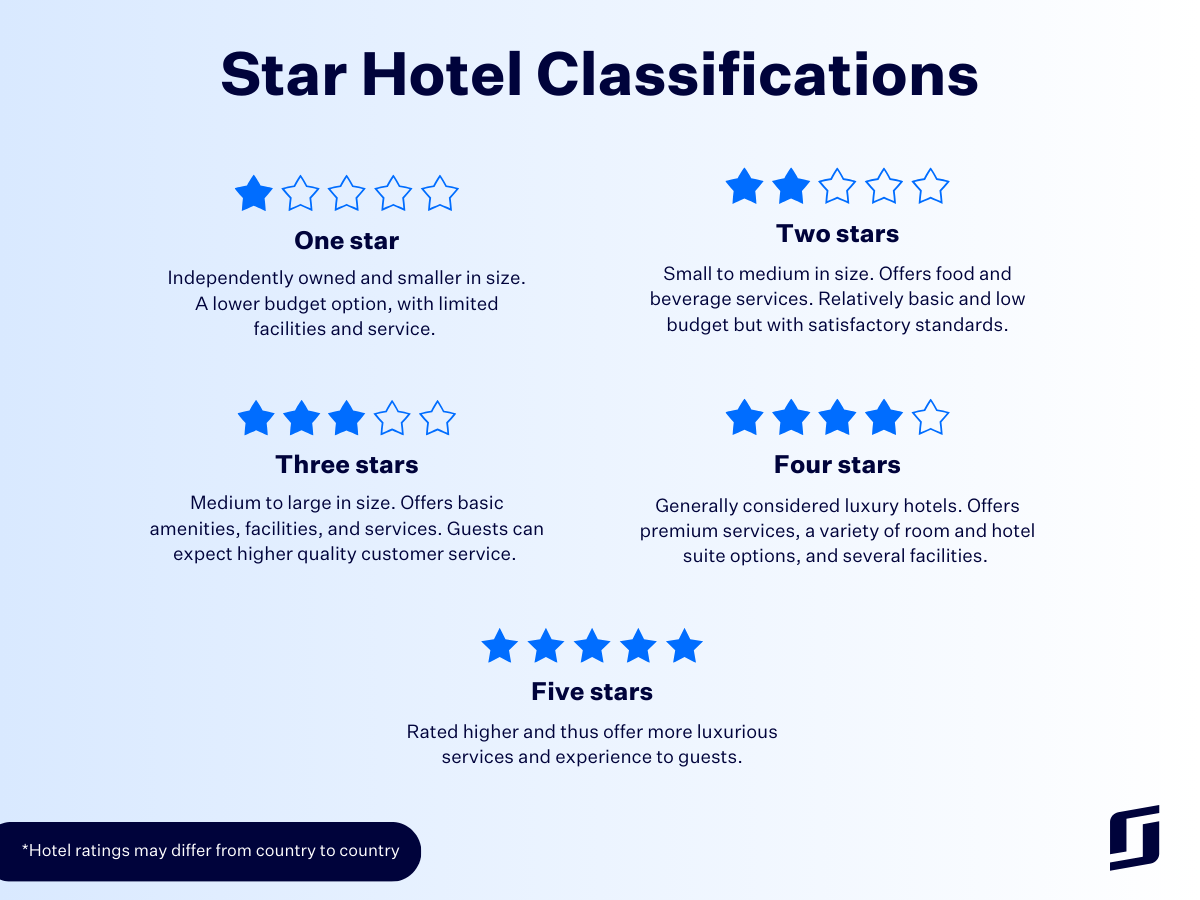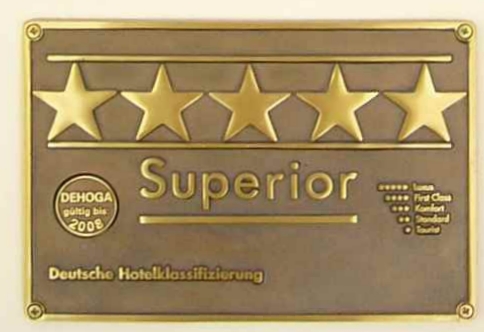Hotel Service Ratings: A Comprehensive Guide to Understanding Quality and Customer Satisfaction
Hotel service ratings are a crucial aspect of the hospitality industry, influencing a guest’s choice of accommodation and a hotel’s reputation. These ratings serve as an indicator of the service quality, facilities, and overall guest experience. As a traveler, understanding how these ratings are determined and what they mean can significantly enhance your experience. In this article, we will dive into the details of hotel service ratings, including how they work, the factors that influence them, and why they matter to both guests and hotel owners.
What Are Hotel Service Ratings?
Hotel service ratings are a system used to evaluate the quality of services offered by hotels. These ratings are often based on a combination of factors such as the facilities, cleanliness, staff service, location, and guest satisfaction. Typically, hotel service ratings are given in the form of stars, with five stars representing the highest level of service and one star indicating basic accommodations.
Types of Hotel Ratings
There are several different hotel rating systems around the world, each with its unique set of criteria. The most common ones are:
-
Star Rating Systems: This is the most well-known system, with ratings from 1 to 5 stars. A 1-star hotel provides basic amenities, while a 5-star hotel offers luxury services and high-end facilities.
-
Diamond Ratings: Used by organizations like AAA, these ratings also range from 1 to 5 diamonds, where 5 diamonds represent the most luxurious hotels.
-
User-Generated Ratings: These ratings are based on reviews left by previous guests, often on booking platforms or travel websites. The average score is calculated to give an overall rating, which can range from 1 to 10 or 1 to 100.
These ratings help prospective guests compare hotels based on their needs and preferences.

Factors That Influence Hotel Service Ratings
Several key factors contribute to determining the service ratings of a hotel. Understanding these factors can help both guests and hotel owners manage expectations and improve the overall experience.
1. Service Quality
The quality of service is the most significant factor influencing hotel ratings. Friendly, professional, and efficient staff are essential to providing a positive guest experience. Guest reviews often highlight aspects such as staff responsiveness, check-in/check-out efficiency, and the willingness to accommodate special requests.
2. Facilities and Amenities
The range of facilities available at a hotel plays a big role in its rating. Luxury hotels typically offer a wider variety of amenities, including spas, swimming pools, gyms, restaurants, and concierge services. Hotels that provide high-quality, well-maintained facilities tend to receive higher ratings.
-
Luxury Hotels: Offer high-end amenities such as room service, private pools, fine dining, and more.
-
Budget Hotels: Focus on providing essential services, such as clean rooms and basic amenities.
3. Cleanliness
A hotel’s cleanliness directly impacts its rating. Cleanliness includes everything from the guest rooms to common areas like the lobby and bathrooms. Hotels with spotless rooms and well-maintained public spaces often receive top ratings.
4. Location
A hotel’s location is another crucial element in its rating. Hotels situated near popular tourist attractions, business districts, or transportation hubs generally receive higher ratings. Location convenience, combined with accessibility to nearby amenities, greatly influences guest satisfaction.
5. Guest Satisfaction
Guests’ personal experiences contribute significantly to service ratings. If guests feel valued and have a memorable stay, they are more likely to leave positive reviews, boosting the hotel’s rating. Hotels with higher guest satisfaction scores often maintain a loyal customer base and higher service ratings.

Why Hotel Service Ratings Matter
Hotel service ratings are not just numbers—they are a reflection of the quality of service and customer experience. Here’s why they matter to both guests and hotel owners:
1. For Guests:
-
Informed Decisions: Hotel ratings help guests make informed decisions when choosing accommodation. A higher rating typically indicates better quality, but guests should always read individual reviews to get the full picture.
-
Peace of Mind: Knowing that a hotel has received high ratings for service and cleanliness can provide peace of mind, ensuring that the guest’s stay will meet or exceed expectations.
2. For Hotel Owners:
-
Reputation Management: Maintaining high ratings is essential for a hotel’s reputation. A high rating attracts more bookings and repeat customers, while a low rating may drive potential guests away.
-
Competitive Edge: Hotels with better service ratings stand out in a competitive market, especially when guests are comparing prices and services.
Tip: Hotel owners should regularly monitor their ratings and address any negative feedback promptly. This helps in maintaining a positive public perception.
How Hotel Ratings Are Determined
Hotel ratings are determined using a combination of professional evaluations and user-generated reviews. Here’s a breakdown of how ratings are usually assessed:
1. Professional Assessors
Many hotels undergo official assessments by rating agencies such as AAA, Forbes, or national tourism boards. These professionals evaluate hotels on a variety of factors, from the quality of service to the condition of facilities. The result is a formal rating (stars or diamonds) that reflects the overall experience provided by the hotel.
2. Guest Reviews
User-generated ratings have become a major influence on hotel service ratings. Websites like TripAdvisor, Booking.com, and Google Reviews allow guests to share their experiences, which are then used to calculate the hotel’s rating. Positive reviews can boost a hotel’s standing, while negative reviews can drag it down.
Understanding the Importance of Different Star Ratings
A five-star hotel is often associated with luxury, top-tier service, and extraordinary amenities, but it’s important to understand that not all five-star ratings are created equal. The specific expectations for each star rating can vary depending on the country, region, or even the booking platform.
-
5-Star Hotels: Provide exceptional service, superior amenities, and impeccable cleanliness. These hotels are often found in prime locations with luxurious facilities.
-
4-Star Hotels: Offer high-quality service and amenities, though they may not reach the same level of luxury as 5-star hotels.
-
3-Star Hotels: Provide comfortable accommodations with essential services, ideal for budget-conscious travelers.
-
2-Star Hotels: Focus on basic needs, often with fewer amenities.
-
1-Star Hotels: Typically offer basic rooms and essential services for the most budget-conscious travelers.

How to Improve Your Hotel’s Rating
For hotel owners and managers, understanding the components that influence ratings can help improve service quality. Here are a few strategies for enhancing your hotel’s rating:
-
Invest in Staff Training: Ensure that your team is trained in customer service excellence.
-
Focus on Cleanliness: A clean and well-maintained environment is crucial for guest satisfaction.
-
Enhance Guest Experience: Small touches, like personalized greetings or thoughtful amenities, can leave a lasting impression on guests.
-
Address Negative Feedback: Respond promptly to guest complaints and strive to resolve issues to improve future stays.
FAQs About Hotel Service Ratings
1. How accurate are hotel ratings?
Hotel ratings are generally reliable, but they should be viewed as a guideline rather than an absolute measure. It’s essential to read individual guest reviews to get a better understanding of the overall experience.
2. Do all hotels in the same star category offer the same quality of service?
No, the star rating system is broad, and the service quality within a star category can vary significantly. Always check guest reviews and specific service details.
3. Can hotel ratings change over time?
Yes, hotel ratings can change as they are continually updated based on guest reviews and official assessments. Hotels that maintain high service standards are likely to see an increase in their ratings.
Conclusion
Hotel service ratings are a critical tool for both travelers and hotel owners. For guests, they provide valuable insight into the quality of accommodations and service. For hotel owners, they are a reflection of how well they are meeting guest expectations and how they stack up against the competition. By understanding the factors that influence hotel ratings, both guests and hotel managers can make better decisions and improve the overall experience.
Always remember, service quality and guest satisfaction are key to achieving the highest ratings, ensuring memorable stays for all who visit.

